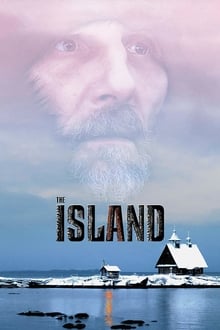
The 2006 film Ostrov (The Island) is a story of religious faith in the bleak Russian north. As the film opens, it is 1942 and the young Russian sailor Anatoly is forced by the Germans to shoot his captain Tikhon. Left for dead, Anatoly washes up on the shore of an island where a monastery is located. He spends the next three decades among the monks trying to atone for the killing of his friend and shipmate. Eventually, though he considers himself the lowest of the low, Anatoly is granted clairvoyance and the ability to work miracles. A steady stream of visitors comes to the island to seek his help.
But Anatoly is a certain kind of saint specific to the Russian tradition, the holy fool. He does things that make no sense to his fellow monks, to the point they think he's insane, but eventually everything he does is revealed to communicate some key spiritual point. Between ministering to the outsiders who visit him and dealing with his exasperated brethren, Anatoly gets no rest.
The film is beautiful in a way. The plot is engaging enough, and for audiences outside Russia (as well as many Russians who grew up under Communism) this is an informative presentation of the realities of Orthodox monastic life. The makeup effects are excellent -- Pyotr Mamonov doesn't look this decrepit in real-life, but on the screen he really is convincing as a starets who has spent decades in an unforgiving environment.
Nonetheless, I found Ostrov rather too heavy-handed, seeming at best sappy and at worst outright propaganda for a certain kind of contemporary Russian Orthodoxy that doesn't represent the faith entirely well. When one thinks of Russian Orthodoxy in cinema, one is tempted to draw comparisons with Andrei Tarkovsky, but even when Tarkovsky wasn't directly using Orthodox themes, he still communicated Christian truths more powerfully than anything in this film (think of the climax of Tarkovsky's Stalker or the ending of Offret). Thus, all in all, Ostrov is entertaining but not terribly deep.